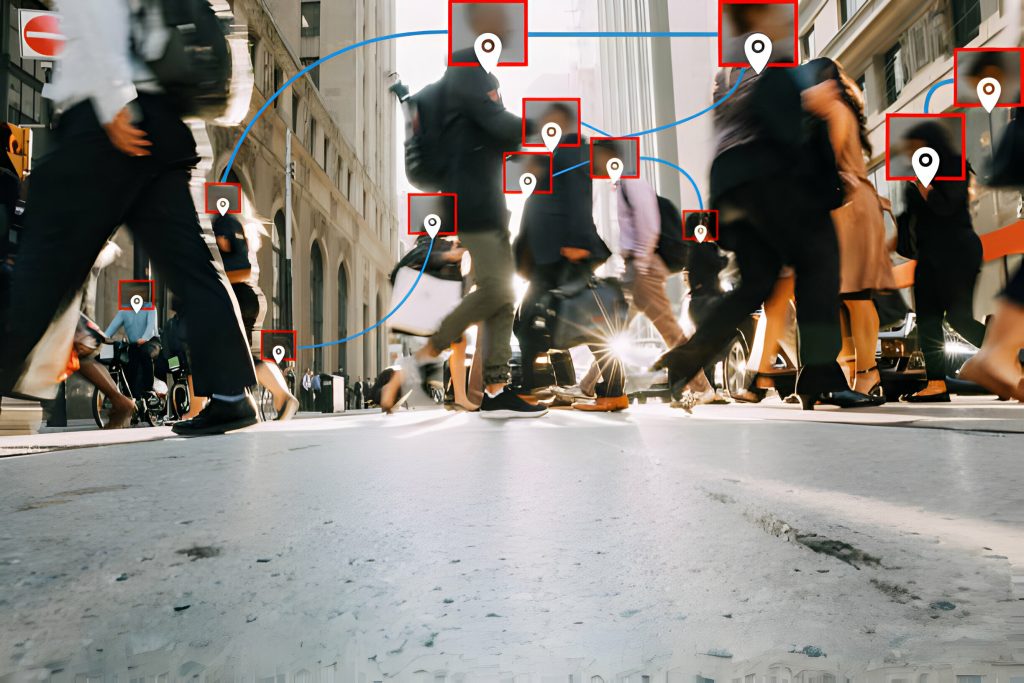AI plays a crucial role by predicting outbreaks, identifying high-risk areas, and aiding in vaccine development. It tracks infected individuals and monitors symptoms, enabling effective treatment and preventive measures. With real-time monitoring and early detection of outbreaks, AI enhances disease control efforts. Despite ethical considerations and challenges, AI combined with international cooperation is essential for pandemic preparedness. So, let’s explore the fascinating role of AI in disease surveillance together!
The Impact of AI in Disease Surveillance
AI has significantly impacted disease surveillance by enabling advanced monitoring, early detection of outbreaks, and efficient response strategies. One of the key impacts of AI in disease surveillance is its ability to enhance early detection. AI algorithms analyze large amounts of data to identify patterns and trends that may indicate the presence of an infectious disease outbreak. This early detection allows for timely interventions and containment measures to be implemented, helping to prevent the further spread of diseases. Additionally, AI plays a crucial role in optimizing surveillance systems by continuously analyzing and updating data from various sources in real-time. This helps to improve the accuracy and timeliness of global health monitoring efforts. Furthermore, AI contributes to outbreak prediction by using predictive models to forecast the spread and impact of epidemics. By accurately predicting disease outbreaks, resources can be allocated more effectively during epidemics, ensuring that healthcare facilities have adequate supplies and personnel to handle the surge in cases. Overall, AI’s effectiveness in early detection, surveillance optimization, global health monitoring potential, outbreak prediction contribution, and resource allocation during epidemics make it a valuable tool in disease surveillance efforts.
Enhancing Disease Detection With AI
By using advanced technology, you can improve disease detection and contribute to public health efforts. AI enables early detection of diseases, driving intervention strategies for timely treatment. With AI’s real-time monitoring capabilities, you can track the progression of infectious diseases and identify potential outbreaks. Additionally, AI plays a crucial role in predictive modeling, helping to forecast disease spread and assess its impact on populations. This information is vital for effective resource allocation during epidemics. By utilizing AI in disease surveillance, you can enhance the efficiency of public health systems and make proactive interventions. The integration of AI in healthcare not only improves disease detection but also aids in implementing timely interventions, leading to better outcomes for individuals and communities alike.
AI’s Contribution to Disease Prevention
To actively prevent the spread of infectious diseases, you can utilize AI technology to identify high-risk areas and implement targeted interventions. AI plays a crucial role in early warning systems, providing timely information about potential disease outbreaks. By analyzing vast amounts of data, AI algorithms can accurately predict the occurrence and spread of infectious diseases, allowing public health authorities to take proactive measures. Additionally, AI’s impact on public health extends to healthcare interventions. It enables healthcare professionals to provide timely and accurate treatments by monitoring patient symptoms and identifying effective interventions. Moreover, AI contributes to disease control by assisting in the identification and implementation of preventive measures such as contact tracing and vaccination campaigns. Overall, AI’s contribution to disease prevention is invaluable in reducing the impact of infectious diseases on communities worldwide.
The Role of AI in Disease Tracking and Tracing
Using advanced algorithms and data analysis, AI technology assists in tracking and tracing the spread of infectious diseases. Here’s how AI plays a crucial role in disease tracking and tracing:
- The effectiveness of AI in contact tracing: AI algorithms can analyze vast amounts of data to identify potential contacts of infected individuals, aiding in effective contact tracing efforts.
- AI-enabled early warning systems: By analyzing real-time data, AI can detect early signs of outbreaks and send alerts to healthcare authorities, enabling prompt response and containment measures.
- AI in identifying disease clusters: Through pattern recognition, AI can identify clusters of infected cases, helping health officials target specific areas for intervention and control.
- AI’s role in monitoring asymptomatic carriers: With its ability to analyze diverse datasets, including symptom patterns and demographic information, AI can help identify individuals who may be carrying the disease without showing symptoms.
AI’s impact on disease surveillance infrastructure: By automating processes and analyzing large volumes of data quickly, AI enhances the efficiency and accuracy of disease surveillance systems, enabling better monitoring and management of infectious diseases.
AI’s Role in Effective Treatment and Intervention
You can rely on AI technology to assist in providing effective treatment and interventions for infectious diseases. AI assisted treatment and intervention effectiveness are key components of AI-driven healthcare. With the help of AI, patient monitoring becomes more efficient and accurate, allowing healthcare professionals to deliver timely interventions. AI algorithms analyze large amounts of data to identify patterns and trends, enabling precision medicine in the field of infectious diseases. By leveraging AI, healthcare providers can personalize treatment plans based on individual patient characteristics and disease progression. This approach enhances the overall effectiveness of interventions and improves patient outcomes. With AI’s ability to process vast amounts of data quickly, it has the potential to revolutionize infectious disease management by enabling early detection, rapid response, and targeted treatments.
AI’s Role in Implementing Preventive Measures
By leveraging AI technology, healthcare professionals can effectively implement preventive measures against infectious diseases. Here’s how AI can assist in controlling disease spread and implementing preventive measures:
- AI in preventive measures: AI enables the development of targeted interventions to prevent the spread of infectious diseases. By analyzing large amounts of data, AI algorithms can identify high-risk areas and predict outbreaks, allowing for timely implementation of preventive measures.
- AI-enabled interventions: With AI, healthcare professionals can provide personalized and effective interventions. Through real-time monitoring of patient symptoms and data analysis, AI helps in identifying individuals who are at risk or need immediate medical attention.
- AI for early detection: Early detection is crucial in preventing the rapid spread of infectious diseases. AI algorithms analyze data from various sources to detect patterns and trends associated with disease outbreaks, enabling early intervention and containment strategies.
- AI in public health interventions: Public health efforts can be strengthened by utilizing AI technology. From tracking and tracing infected individuals to identifying potential hotspots, AI aids in implementing targeted interventions that control the spread of diseases within communities.
Incorporating intelligent systems into disease surveillance allows for a proactive approach towards preventing infectious diseases. By harnessing the power of AI, healthcare professionals can effectively implement preventive measures that safeguard public health.
AI’s Contribution to Public Health Efforts
AI technology has significantly contributed to public health efforts by enhancing disease control and prevention measures. AI’s role in data analysis has revolutionized healthcare systems, allowing for more accurate and efficient processing of vast amounts of information. This has enabled early warning systems that can detect and predict disease outbreaks with greater speed and accuracy. Furthermore, AI’s contribution to public health interventions is invaluable, as it assists in identifying high-risk areas, tracking infected individuals, and implementing preventive measures. By analyzing patterns and trends in data, AI enhances outbreak prediction capabilities, enabling timely response and containment strategies. Overall, AI’s impact on healthcare systems has improved the effectiveness of public health efforts by providing valuable insights and supporting decision-making processes in disease surveillance.
Advancements and Potential of AI in Disease Control
Advancements in AI have revolutionized disease control and prevention measures, improving the effectiveness of public health efforts. The potential of AI in disease control is immense, with numerous applications that bring about significant benefits. Here are four key aspects to consider:
- AI advancements enable early detection and prediction of disease outbreaks, helping authorities take proactive measures to prevent their spread.
- AI plays a crucial role in monitoring and managing infectious diseases by analyzing large amounts of data to identify patterns and trends.
- AI aids in vaccine development by speeding up the process through data analysis and modeling.
- Despite its benefits, AI also presents challenges such as ensuring data privacy, addressing algorithm biases, and navigating ethical considerations.



